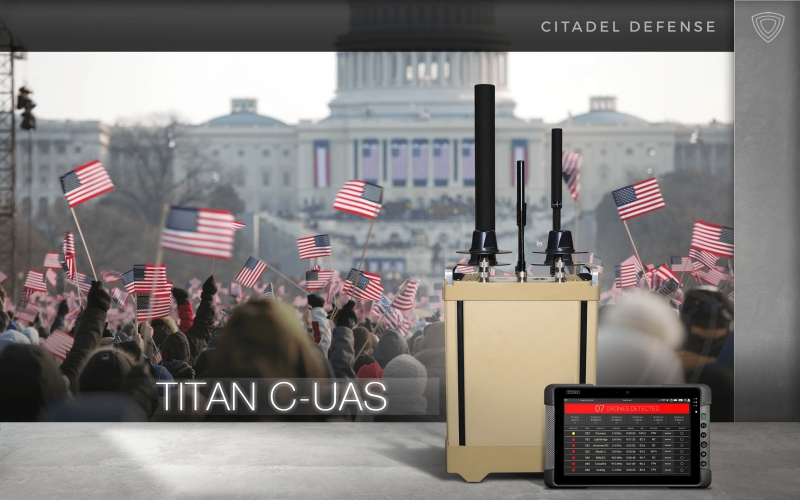has pushed a new AI and machine learning software release to Titan systems deployed across thirteen countries. The software has evolved over 27 months of successful deployments across multiple combatant commands and hundreds of unique environments.
Owning the world’s largest dataset adapted for AI-based drone detection, Citadel can quickly and cost-effectively extend protection against emerging foreign-built drones, like those used in recent attacks on Armenia and the Middle East, that evade legacy counter drone systems.
As the Pentagon looks for reliable ways to counter commercial quadcopter attacks on American troops in Iraq, Afghanistan, and Syria, Citadel’s proven AI capabilities provide the necessary protection and responsiveness for the evolving C-sUAS mission.
“Library-limited counter drone systems that are overly complex put important missions at risk along with our servicemen and women. Titan’s use of AI, machine learning, and automated robotics significantly reduces operator stress while accelerating response time,”
explains Christopher Williams, CEO of Citadel Defense.
The leader of U.S. Central Command, General McKenzie, expressed concern that the growing threat posed by unmanned aircraft systems, coupled with the lack of dependable capabilities to counter them, was the most concerning tactical development in the CENTCOM region.
“By substantially reducing system complexity, providing an industry-leading low false alarm rate, and delivering the most expansive detection and mitigation threat coverage, Citadel’s customers can focus on their missions without unnecessary and potentially life-threatening distractions,” says Williams.
Citadel’s radiofrequency sensors bring the most advanced AI and machine learning detection performance to integrated layered counter drone solutions. The system’s open architecture allows for quick integration with other sensors, offering a suite of options that match any mission need or configuration.
Citadel aims to make C-sUAS protection ubiquitous across government, military, and commercial force protection missions. With $30M in Government contracts for their Titan solution, the company recently tripled manufacturing production capacity to deliver on urgent contracts.
Source: Press Release

